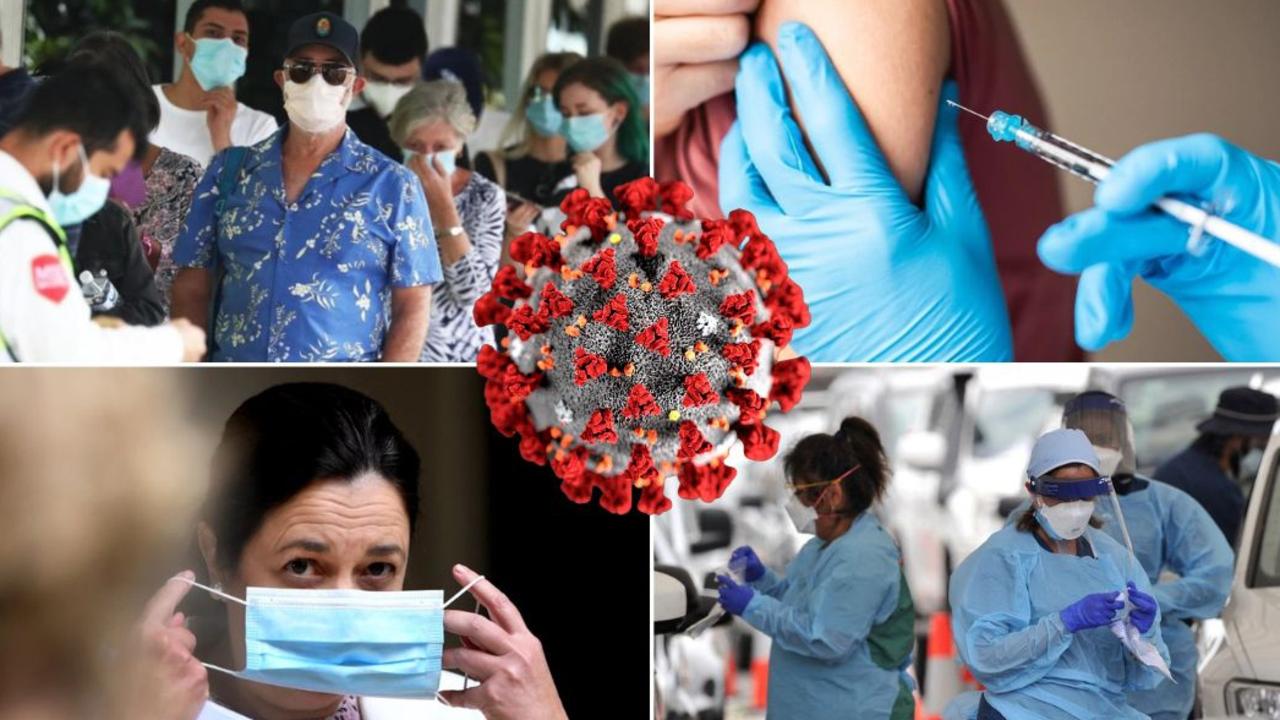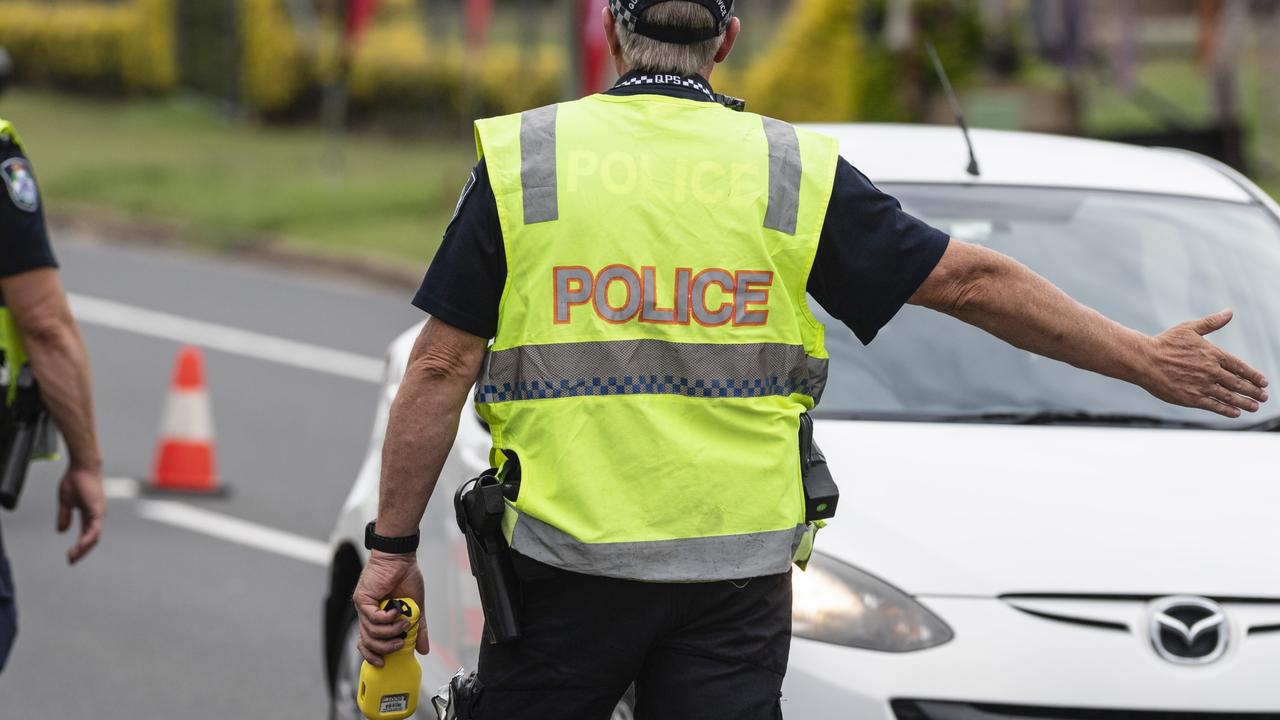Inside Gold Coast Covid wards: Dr Kylie Alcorn reveals what faces sickest patients, how staff have coped
The unvaccinated are over-represented in hospital, says the city’s top doctor, as she reveals the social media rumours and ‘hoaxes’ health workers deal with daily.
Coronavirus
Don't miss out on the headlines from Coronavirus. Followed categories will be added to My News.
The doctor leading the Gold Coast Covid fight is making a plea to the unvaccinated to join the “community effort”, as the city’s Omicron case surge is declared to have peaked.
In her first interview since being appointed, Gold Coast Health’s Director of Infectious Diseases Dr Kylie Alcorn said:
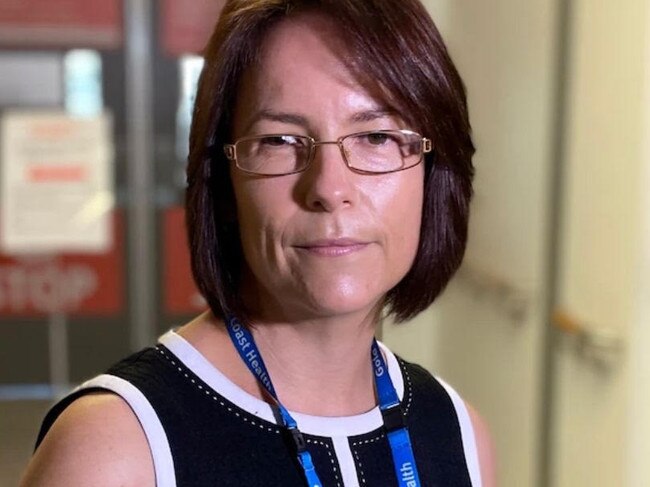
- the unvaccinated were “well and truly” over-represented in wards;
- staff morale remained good despite “stress and fatigue” from treating so many sick patients;
- saving the lives of touch-and-go severely ill patients were the “precious moments” getting staff through.
In an indication of just how quickly the Omicron variant has spread on the Gold Coast, when she spoke on Friday Dr Alcorn hopeful the worst of the Omicron wave might soon be behind the city but was unwilling to call the peak.
“We’re hopeful that we have reached the top of hospitalisations but we are certainly not confident of that yet,” Dr Alcorn said.
“Our worst day a couple of days ago was 193.
“The peak in the community will occur first. We’re expecting a couple of weeks later to have our peak in the hospital as people get sicker in the second part of their Covid illness. We’re definitely not calling our peak yet.”
Days later on Monday, the person she replaced, Dr John Gerrard – now the state’s Chief Health Officer – revealed the Gold Coast was “close to or past its peak”.
He said the city had had four consecutive days of declining hospitalisations.
Dr Alcorn, who took up her new role after predecessor Dr Gerrard replaced Jeannette Young as the state’s top doctor in December, said the first few weeks of the Omicron wave had been “hectic”, but the city’s hospitals were coping well.
OMICRON SURGE ‘HIT QUICKER’
“It took off so quickly,” Dr Alcorn said. “The first three weeks were pretty hectic. Now it’s still busy, but it’s busy across the board and we’re more streamlined to it.
“It certainly hit quicker than we thought it would. We planned for a surge but we didn’t have the idea it would be as big as the surge has been. We have eight wards at the moment, we weren’t expecting quite that many. (by Monday, nine wards were dedicated to Covid patients).
“(The wards) are across the two campuses (Gold Coast University Hospital and Robina) and then we also have sites within maternity and children’s and mental health, and in addition we have ICU.”
Dr Alcorn said while most people infected with Covid were able to recover at home, the disease was resulting in serious issues for some patients, causing them to seek help at Gold Coast hospitals.
“A good portion of our patients are coming in because of the Covid pneumonia,” Dr Alcorn said. “That’s by far the most common. They’re short of breath, really fatigued because they don’t have enough oxygen.
“... We are also having a significant amount of people coming in with just severe fatigue, particularly if they’re frail. Fatigue to the point where they wouldn’t be able to walk across the room to go to the toilet. And that’s lasting for days.
“We’re having quite a few presentations for myocarditis, inflammation of the heart. They’re presenting with chest pain.
“The other presentation is gastrointestinal upsets so either they can’t tolerate anything orally or significant diarrhoea leading to the point of significant or severe dehydration and kidney impairment.
“They’re our predominant presentations.”
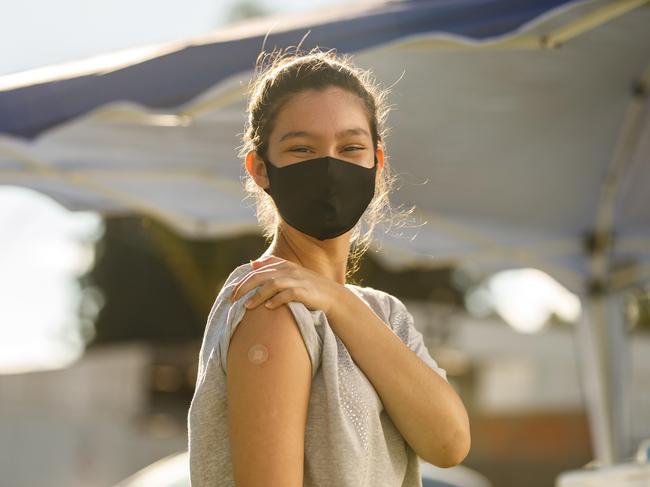
MOSTLY SEEING UNVAXXED
Dr Alcorn said that while Gold Coast Health was seeing Covid in some vaccinated people, they were not seeing many people who had received their booster shot and the “predominant number” on wards were unvaccinated.
“We are unfortunately seeing a lot of people coming in that are vaccinated that are having severe disease, but those cases usually have other medical problems,” Dr Alcorn said.
“We’re not seeing many come in that have been boosted, and significant disease.
“The booster, I think, is no longer considered a booster but really that primary course of vaccination we should all have to protect us from severe disease.
“When you look at the figures, ten per cent (of the general population) aren’t vaccinated, they’re well and truly over-represented in our patient cohort.
“Whilst I might say that we’ve had vaccinated people who have become quite sick, the predominant number on our wards are those that are unvaccinated and by proportion of the population are well and truly over-represented here.”
Dr Alcorn revealed becoming ill with Covid was not enough to change many unvaccinated patients’ opinion. However she stressed she was happy to see them come forward for treatment.
“With some patients that are unvaccinated, and they have Covid, they still either don’t believe they’ve got Covid, it’s still all a hoax,” she said. “Getting Covid does not seem to change their opinion on vaccination or Covid.
“But they are very very happy for therapy which is wonderful, because we obviously want to offer all patients access to medications if we can, whether they’re vaccinated or not, anti-vaxxers or not.
“Thankfully most people that are not pro vaccination are still pro therapy, which is good.”
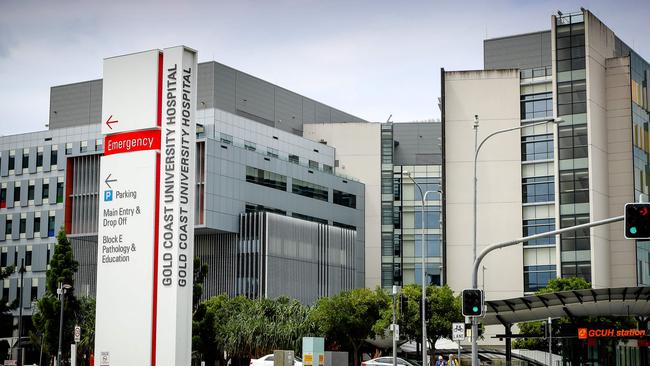
STAFF FATIGUE, MORALE
Dr Alcorn said Gold Coast Health staff were working long and exhausting shifts, that fatigue and stress were issues, but that they were supporting each other and that staff morale remained “pretty good”.
“Everyone knows this is a unique time, our community is at risk, our patients are sick. So everyone really is rallying around. That boosts morale when you’re working long hours and really intense hours,” she said.
“The shifts are exhausting for a lot of different cohorts in the health service. But it is a little bit balanced by working in a team where you know we support each other and we’re here for our patients, it does help.
“There is certainly fatigue and there is stress. People, different staff across the HHS (Hospital and Health Service) are also working in different roles they don’t normally work in and that causes anxiety, naturally. So it’s about also being supportive of those new roles and (getting staff) the help they need to be able to work.
“We’re all trying to roll with the changes at the moment as they evolve.”
The biggest concern remained ensuring good outcomes for the large number of sick patients being admitted at Gold Coast University Hospital and Robina.
“We went for so long just looking after people that come in because they returned from overseas, they’re well, they have Covid, they come into hospital, we watch them to make sure they don’t deteriorate,” Dr Alcorn said.
“But now we have really sick people, and we have a lot of sick people. We didn’t have that before.
“And we’ve had deaths now. Before this wave we didn’t have any deaths on the Gold Coast. That’s been the hard thing, trying to safely manage such a huge number of patients who are truly sick and prevent them deteriorating and dying. That’s a constant source of stress and anxiety for all of us who are working in this area.
“We just don’t want that, we’re trying our best to make sure we don’t drop any balls so that patients get the best care they need for Covid, and also for non Covid when the health service is under stress. It’s just trying to make sure we don’t let something slip.”
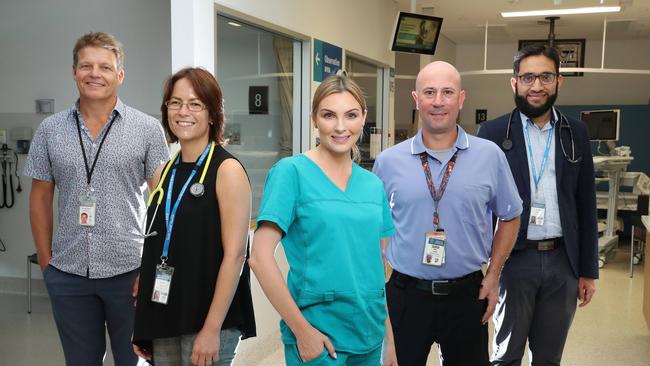
VACCINE SIDE EFFECTS
Dr Alcorn revealed - contrary to claims on social media, and in stark contrast to the number of unvaccinated patients turning up ill due to Covid - health staff were seeing little or no cases presenting as a result of side effects from receiving vaccines.
“Certainly people have had headaches or fevers, there has been one patient that had mild myocarditis, but I haven’t had anyone severely ill, and I certainly haven’t had a lot of numbers with any type of serious problem. It’s just not true,” Dr Alcorn said.
“I don’t know that anything we say can refute that, they (anti-vaxxers) will believe what they’ll believe. There are so many false websites and so much false media.
“Thirty years ago we wouldn’t have had such a problem because we didn’t have social media, we didn’t have YouTube and everything else. Now, I don’t know how you change it.”
WE’RE IN THIS TOGETHER
Dr Alcorn also took issue with claims from vaccine opponents that because Covid did not cause fatal illness in the majority of people who do not have underlying health conditions, they need not get the jab.
“I don’t know how to get this message through, but if an anti-vaxxer were to say, ‘I don’t have comorbidities, I’m going to be fine’, my problem with that is, you are increasing the chance of it spreading to someone who does have comorbidities and who is vaccinated,” she said.
“A five-year-old or an 11-year-old who is vaccinated, with leukaemia, has an increased risk of dying from it (Covid), and has an increased risk of getting it because you’re not vaccinated.
“So I really struggle when people come up with that argument, because in the sense of community spirit, and all of us being human beings, and living together, I would hope people don’t see it that way.
“But further, even if you don’t die, you can be unvaccinated, perfectly well, and still end up in ICU without any medical problems. Yes you may not die, you may pull through.
“We have had certainly in Australia deaths in unvaccinated, well, human beings, but yes, they’re way less than those in people with comorbidities. That doesn’t mean they don’t end up in ICU, that doesn’t mean they don’t have a two to three week stay on our Covid ward, fighting for oxygen, trying to breathe, really sick.
“We have certainly had young people here who have had an awful time of it but they don’t get reported in the stats because, thankfully, they make it out.
“It’s still not a mild illness, even if you’ve got no comorbidities, for some people. And whilst the majority will have an ok illness if they’re young, (and) don’t have comorbidities, if you’re that one that ends up in ICU for three weeks, or if you’re that one that does die, your poor family then have to mourn you, and I just think that’s terrible.
“(Vaccination) is a community effort. But if that doesn’t motivate people, the notion that you yourself can get very sick should.
“The same goes for parents of kids, because yes, kids overall have a very mild illness, but if you’re that parent of that one child who dies, it doesn’t matter (to you) that a hundred other kids got better, your child died. That’s all you need to know.”
SAVING LIVES
In the meantime, Gold Coast Health staff continue to work hard helping people who become ill. Dr Alcorn said amid the long hours, there were special moments that boosted staff morale.
“We’ve had three patients we thought, because of their frailty and their comorbidity, we were sure they were going to die,” she said. “And they bounced back and have left and gone back to their families.
“We’re all elated. We’re worried for a couple of days and then they turn the corner and it’s like ah, let’s not get too positive, you never know, and then they leave, and it’s like, oh wow.
“It makes us feel like we are doing our job well. It boosts morale on the wards when that happens.
“Moments like that are precious.”


